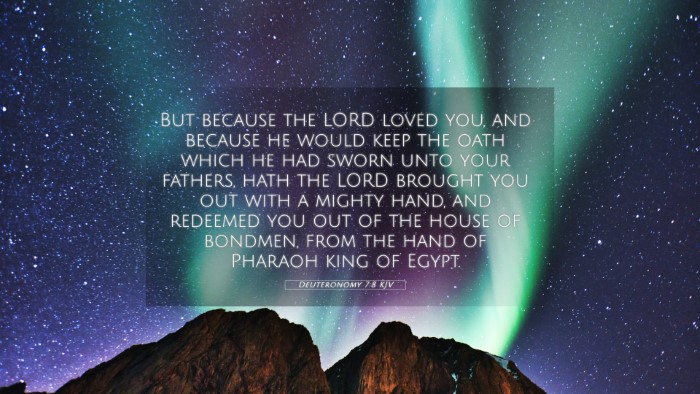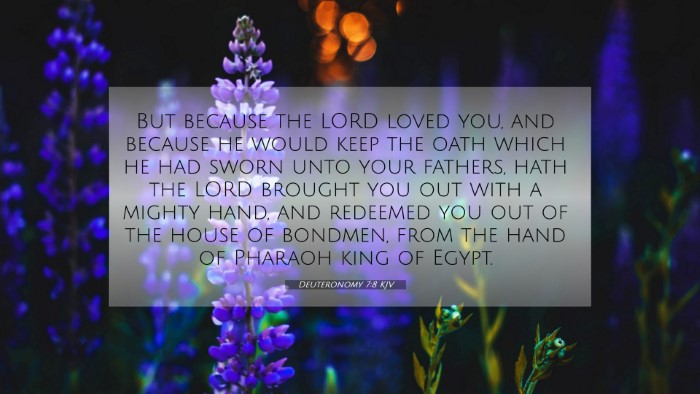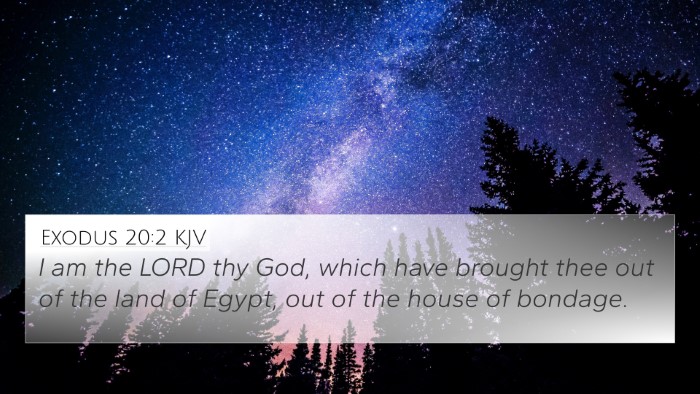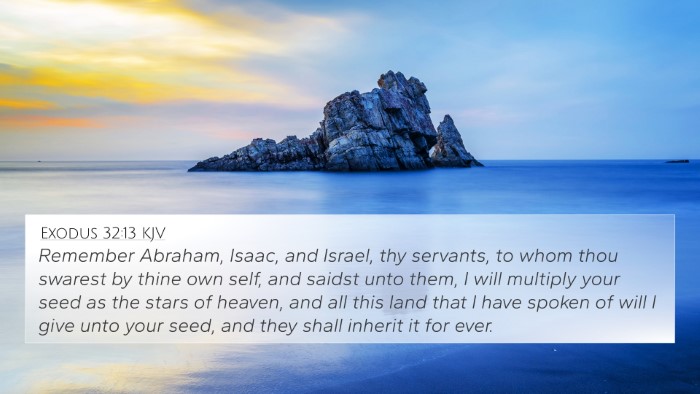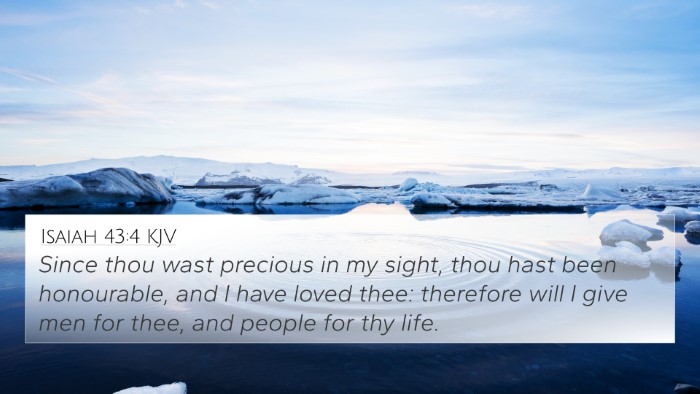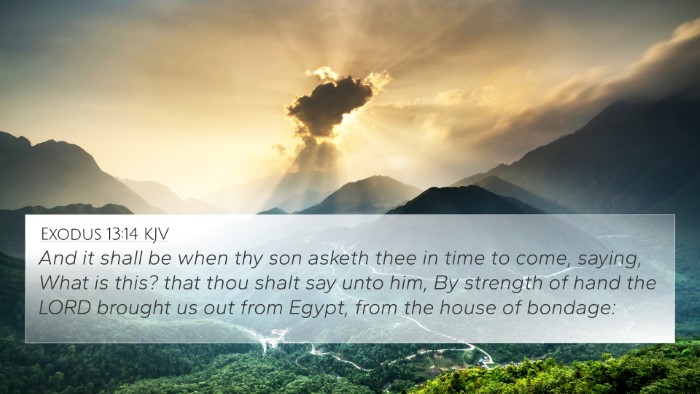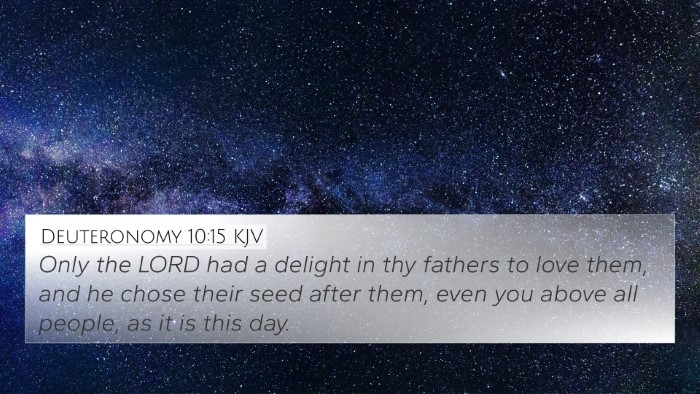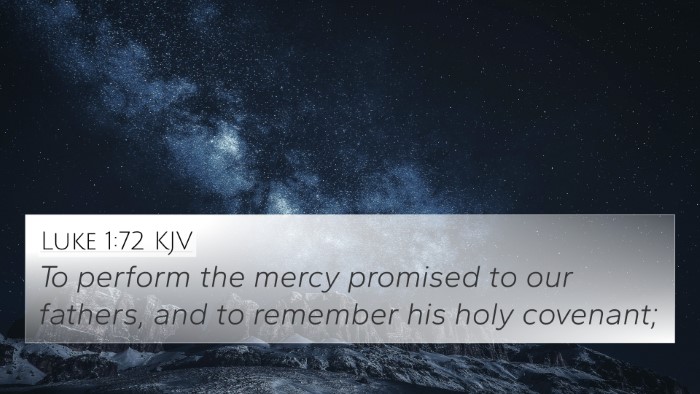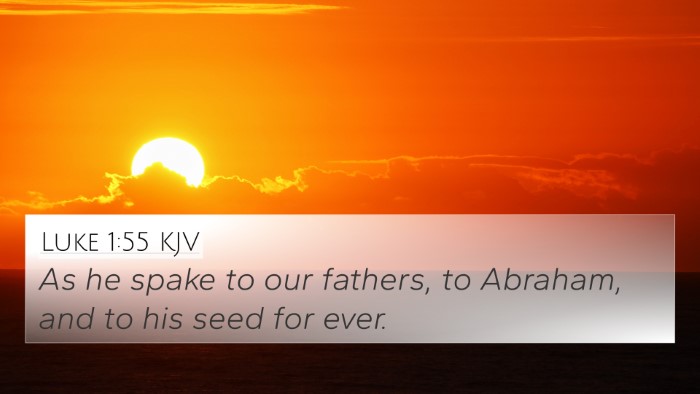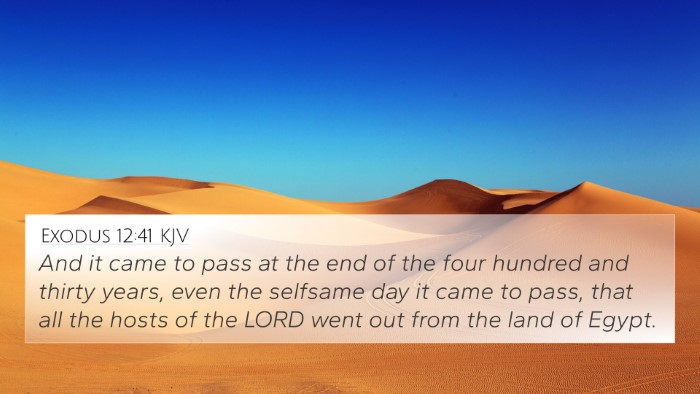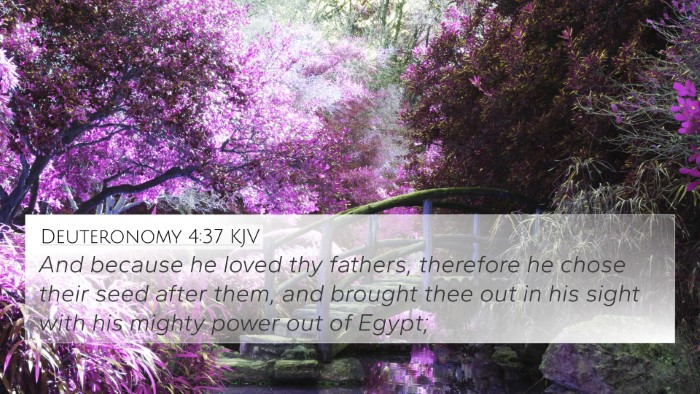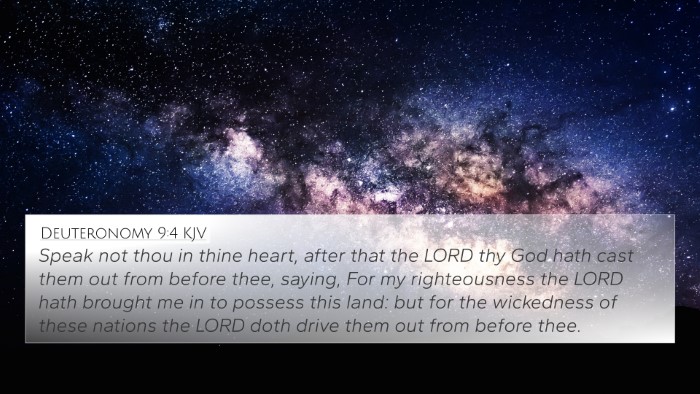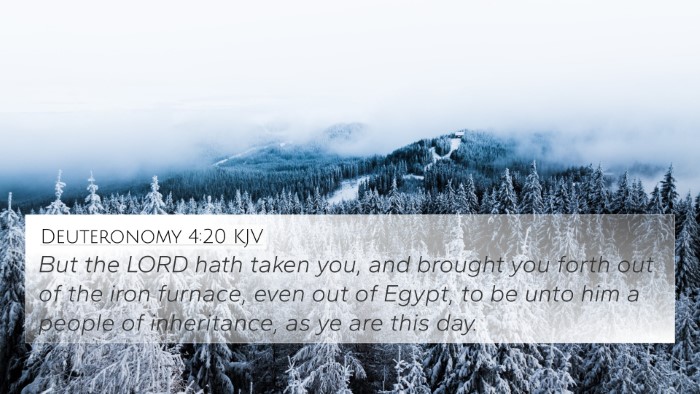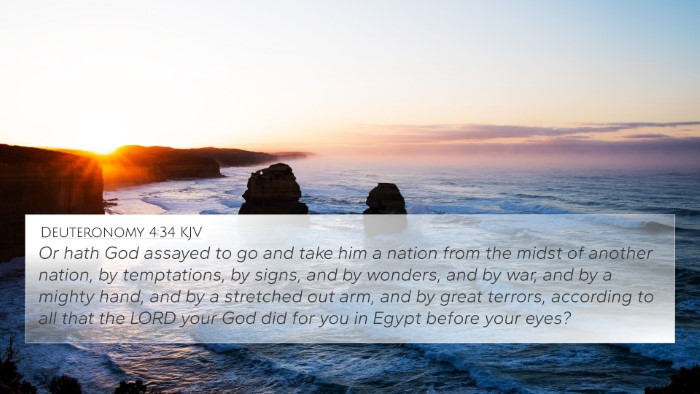Understanding Deuteronomy 7:8
Deuteronomy 7:8 states: "But because the LORD loved you and kept the oath which he swore to your fathers, has the LORD brought you out with a mighty hand, and redeemed you out of the house of bondmen, from the hand of Pharaoh king of Egypt." This verse is rich with meaning that reflects God's covenantal love and faithfulness.
Key Themes in Deuteronomy 7:8
- The Divine Love of God: The verse emphasizes God’s love for His people, which is foundational to the entire narrative of Israel's history.
- Covenantal Faithfulness: It highlights the importance of God's promises and His fidelity to the covenants made with the patriarchs.
- Redemption narrative: The imagery of being brought out from Egypt signifies liberation and the establishment of a chosen nation.
Commentary Insights
Matthew Henry notes that God's love is not arbitrary but is based on the covenant relationship He initiated. The act of redemption from Egypt is seen as a powerful demonstration of this love, showcasing God's might and strength in liberating His people from oppression.
Albert Barnes emphasizes that the text reflects God's ongoing commitment to His people. His discussion expands on how the "oath" refers to the promises made to the forefathers, and how these ancient pledges have enduring implications for Israel’s identity.
Adam Clarke offers insights into the metaphor of God’s "mighty hand," pointing out that it symbolizes a direct intervention by God in history. Clarke views this act as not only a historical event but also a theological marker of God’s continuous intervention in the lives of His people.
Cross-References
Deuteronomy 7:8 connects with several other biblical passages, illustrating its themes both within the Old Testament and the New Testament. Here are relevant cross-references:
- Exodus 6:7 - God's promise to be the God of Israel.
- Deuteronomy 4:37 - The love God has for Israel.
- Psalms 105:43-45 - God's faithfulness and redemption of His people.
- Isaiah 63:9 - Reflecting on God's presence during trials.
- Romans 8:31 - God's justification and love for His people.
- John 3:16 - God's love through Jesus Christ for all mankind.
- Hebrews 13:5 - God's eternal promise to never leave nor forsake His people.
Exploring Connections Between Bible Verses
This verse lays the groundwork for understanding the connections between various Bible verses. By engaging in Comparative Bible verse analysis, one can see how the theme of divine love and redemption permeates scripture.
For instance, linking Deuteronomy 7:8 with Romans 8:31 highlights God's unyielding love for His chosen people. Both scriptures emphasize that God's intentions are rooted in love, extending beyond mere duty.
Tools for Bible Cross-Referencing
In studying Bible verses that relate to each other, it can be helpful to utilize various tools:
- Bible Concordance: This resource assists in finding relevant passages connected by themes, keywords, and subjects.
- Bible Cross-Reference Guide: A systematic approach to studying similarities and thematic connections.
- Cross-Reference Bible Study: Techniques employed to delve deeper into intertwined narratives and theological points.
Understanding Inter-Biblical Dialogue
The inter-Biblical dialogue between the Testaments sheds light on how Old Testament themes resonate throughout the New Testament. The themes of love, chosen-ness, and redemption highlight God's faithful character, establishing continuity in the biblical narrative.
Applying Cross-Referencing in Bible Study
When engaging with how to use Bible cross-references, consider the following methods:
- Identify keywords in Deuteronomy 7:8 and trace these through a concordance.
- Use thematic studies to compile verses that relate to God's love and redemption.
- Incorporate comparative studies across both Testaments to see how New Testament teachings fulfill Old Testament promises.
Conclusion
In summary, Deuteronomy 7:8 serves as a significant reminder of God’s love, covenant fidelity, and redemptive power. The connections made through careful Scriptural cross-referencing enhance our understanding of the overarching narrative of the Bible, revealing God's intentions and actions throughout history.

